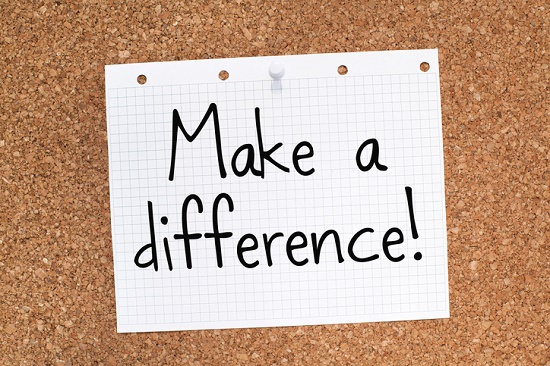If you already use hearing aids, you’ve already overcome the odds.
In the US, about 48 million individuals have hearing loss, of which 28.8 million could benefit from utilizing hearing aids.
However, of those age 70 and older, only 30 percent of those who could benefit from hearing aids actually use them. For those age 20 to 69, it’s merely 16 percent.
That’s literally millions of Americans that are losing out on the rewards of better hearing—benefits you understand first-hand if you use hearing aids yourself or know someone who does.
So what can you do to elevate awareness about the benefits of hearing aids and the improvements to the quality of life they supply?
The following are ten ways to become an advocate for hearing health.
1. Discuss hearing loss on social media
Social media is a simple and efficient way to spread the message about the benefits of better hearing. Tell people about how hearing aids work, and how they’ve personally enhanced your life or the life of someone you know.
Although people are in general skeptical of advertising, they’ll almost always be receptive to personal stories.
2. Volunteer to help those in need
Participate in a local activity like the Hearing Loss Association of America’s Walk4Hearing event, or organize your own to boost awareness or funds for hearing loss.
Get in touch with your local hearing loss chapter and find ways you can help out in the community. Check out the Hearing Loss Association of America to find a local chapter.
3. Donate your old hearing aids
If you’re set to upgrade your hearing aids to a newer model, consider donating your old hearing aids to a local organization or hearing clinic.
Your donated hearing aids can be renovated and provided to those who couldn’t otherwise pay for them.
4. Contribute to hearing health organizations
Consider donating to an organization that supports the deaf and hard-of-hearing community, such as the Hearing Health Foundation, Hearing Charities of America, or a local organization.
These establishments use the donations to fund research, to deliver education and support, and to supply financial assistance to those who can’t pay for hearing aids or cochlear implants.
5. Start a petition
Most states do not mandate health insurance plans to cover the cost of hearing aids. Start a petition to submit to your elected officials, asking them to recognize hearing health as a critical element of overall health.
6. Help someone overcome hearing loss
Many people accept as true the myth that hearing aids don’t work, or they may even be denying they have hearing loss to begin with.
Help people to recognize and accept their hearing loss and understand that the technological innovations in hearing aids can help them get back their hearing. Help guide them through the process of finding a provider, getting a hearing test, and adapting to their hearing aids.
7. Advocate for the community
Hearing loop systems supply sound straight from the sound source to the individual’s hearing aids. These are found in movie theaters, churches, universities, and auditoriums.
Advocate for the addition of hearing loop systems in the most popular community venues.
8. Use hearing protection
Among the most effective ways to advocate for hearing health is by becoming a hearing health role model. That means protecting your hearing at loud settings, like at rock concerts or sporting events, with customized hearing protection.
9. Get your hearing tested
If you don’t already use hearing aids, express your commitment to hearing health by getting your hearing tested. Share the process on social media and suggests that others do the same.
10. Wear your hearing aids with pride
Finally, you can do your part to end the stigma of hearing loss by wearing your hearing aids with pride. Hearing loss is widespread, just like vision loss, and wearing hearing aids should be as natural and acceptable as wearing a pair of prescription glasses.

